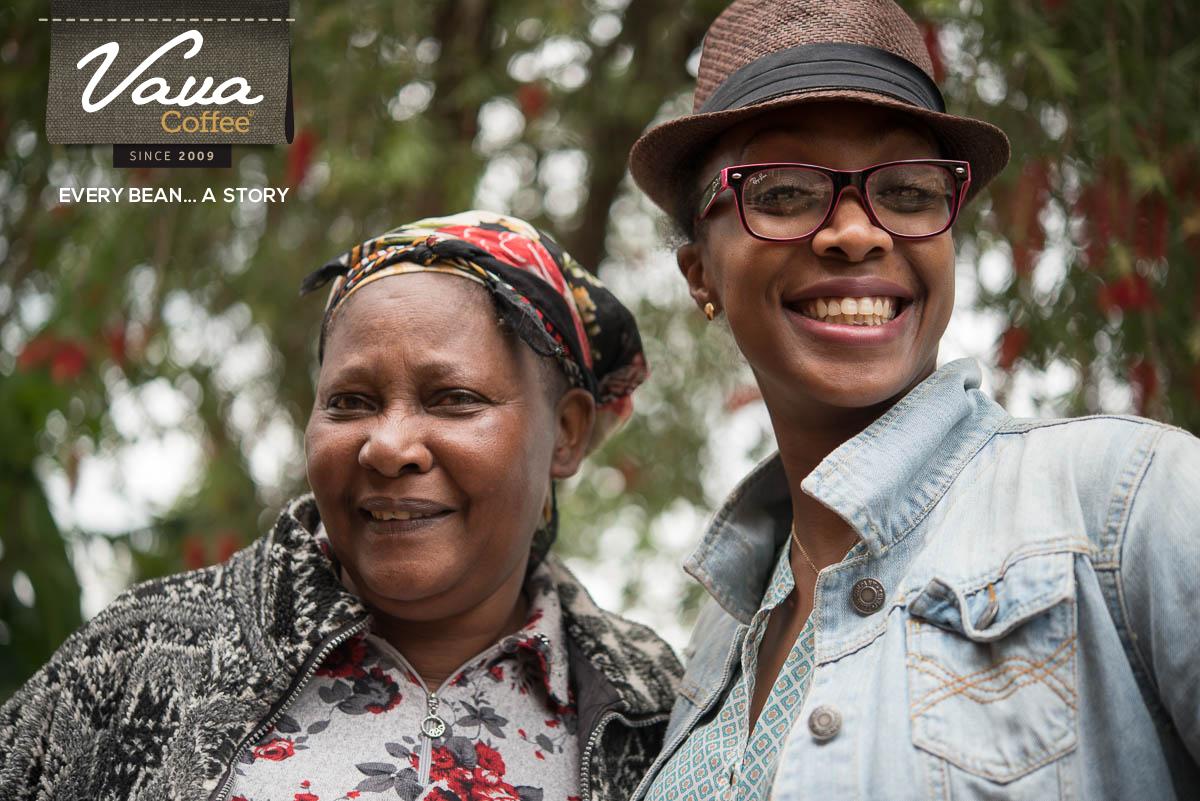Impact Measurement Impacting Lives: How Female Coffee Farmers in Kenya Are Improving Yields and Incomes With Data
by Vava Angwenyi, Founder & Chief Coffaholic Vava Coffee; Co-founder & Director Gente Del Futuro

I write this reeling from the recent surge in market visibility for women coffee farmers in Kenya’s Rift Valley. These women have been working tirelessly to improve coffee quality, increase volumes to record highs and diversify their revenue streams to include freshly-roasted packaged coffee.
The story of these women began when a group of men in a community in Kenya’s Rift Valley made the decision to hand over their coffee bushes to their wives. In Kenya’s coffee growing regions, coffee bushes mean income, opportunity and empowerment. Endowed with valuable assets and a natural determination, these women capitalized on their newfound resources to create something of their own. Now they boast higher crop yields, profit margins, quality, product portfolio and visibility for women coffee farmers across Kenya, even fetching record prices in the last two seasons.
Vava works with these women and with various other farmer groups across coffee-growing regions in Kenya. As a woman myself in the male-dominated, highly international and lucrative coffee industry, I have felt it my duty to lift, represent and empower other women, especially the rural women who tend to this precious Kenyan commodity. In talking to these women and hearing their many stories of success and progress, I have no doubt of their fresh sense of empowerment. It occurred to me, though, that not everyone enjoys the privilege of having face-to-face conversations with these inspiring women. How can all stakeholders, from investors to consumers to the communities themselves, see the far-reaching impact these opportunities are having on women’s lives and their families? How do we as a business truly track and measure these women’s progress on the ground? How do we ensure that the profits from this premium, high-quality, women-grown coffee make it back to the communities and families who’ve worked so hard to grow it?
With assistance from Business Call to Action’s Impact Measurement Service (BIMS), we have taken the first step in answering some of these pressing questions. Together with the BIMS team, we created a social value chain, which helps us track our business operations as they pertain to social impact and commercial viability. More specifically, the social value chain assesses our impact on farmers’ incomes and livelihoods as well as the broader coffee market system in Kenya.
Based on this value chain, we designed and deployed a digital survey aimed at measuring our impact against our goals. The survey targets coffee farmers who engage in direct trade with us through their cooperatives as well as those whose cooperatives are not licensed to trade directly yet. Since launching the survey, we have been using it to collect and analyse quantitative and qualitative feedback to establish a baseline and track impact on farming practices, farmers’ finances and farmers’ awareness over time.
On top of that, we capture additional evidence of impact by tracking premium coffee sales at the commercial auctions where the cooperatives see most of their sales. In order to draw direct price comparisons with our inclusive buying model, we receive weekly auction emails and extract key data such as volumes, prices and buyers of premium coffee sold.
Developing a survey and strengthening our data collection capabilities has been central to seeing the fruits of our labour and answering those pressing questions about our true impact. Nevertheless, our goal of empowering women coffee farming communities in Kenya has not been without its organizational challenges. With limited resources and farmers spread across wide swaths of Kenya, it is a huge task to capture accurate data and consistently engage our farmers each season, all while tracking the long-term effects of our work. We realize that beyond increasing both financial and human resources on our end, we must also invest further in educating these women and their communities on how to effectively utilize their new resources to ensure good incomes are sustainable in the long term.
Through meaningful data collection and analysis, we want to see concrete evidence of our impact and make sure that opportunities and incomes continue to grow for Vava women and their families. As an impact-driven organization, we owe it to our consumers, our investors and our communities to responsibly manage, measure and report on the work we do. Thankfully, like the women who work hard to nurture their coffee bushes, our initial endeavour in data collection and analysis has been fruitful and yielded many positive results. It is with pride that I see Vava and its coffee farming communities continue on a promising path forward.
